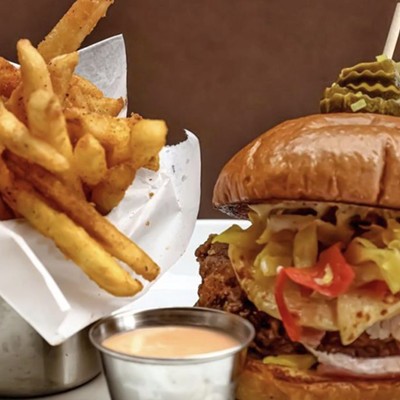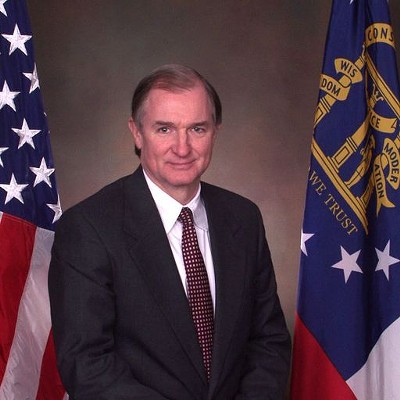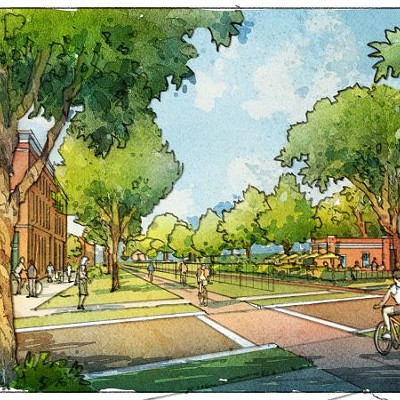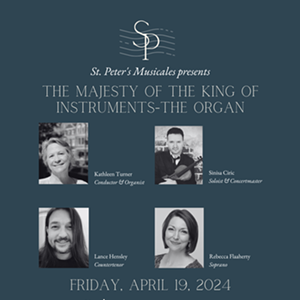Below are the complete interview transcripts excerpted in the June 11, 2008 article on the City of Savannah’s proposed amendment to its “Minors Alcohol Ordinance”.
First up is a telephone chat with Chris Morrill, Savannah’s Assistant City Manager for Management And Financial Services:
There’s been a great deal of discussion surrounding this issue and at times some of it has been more than a little heated. Is the City manager’s office pleased with the wording of this current draft of the proposed ordinance?
Chris Morrill: I would say yes. I think we’ve had a lot of input from the affected businesses, and from City Council, which frankly, really wants to deal with this issue. I thin we’ve been able to focus on the key issues at hand — which are capacity and underage drinking.
Do I understand correctly that Hybrid establishments will be allowed two separate occupancy ratings — one when set up as a seated restaurant, and the other with their setting removed to become more of a standing environment, and they will be allowed the option to reconfigure for higher occupancy if they so choose, provided it’s clearly posted at the primary entrance?
Chris Morrill: That’s correct, but let me phrase it another way. There are two triggers that signify when a restaurant is turning into a bar. One is the occupancy level: you have restaurants with tables, and then a bar-style occupancy at a higher level when those tables are moved or removed. So, if you’re always going to remain a restaurant, that’s not an issue at all.
But, if one chooses to be included in this new category, they’d be required to have the two different occupancy levels clearly posted. Also, a major change that came out of these meetings is that the subject of entertainment was totally taken out of the current draft. Most folks came to the conclusion that it was not the problem.
There seems to be no clear time listed for when everyone under the age of 21 would half to be out of a Hybrid establishment. At the first draft discussion meeting I attended, it was suggested they’d have to be out by 30 minutes before the kitchen closes, but that is not explicit on here. How will that work?
Chris Morrill: Well, I was recently in the city of Bend, Or., and I noticed that the restaurants there seem to do the same basic thing. They had signs posted which made it very clear at what time all patrons under 21 would have to be off the premises. Our Revenue Director Buddy Clay has been doing most of the research on this, and he has compiled a list of several cities with similar laws, and how they have chosen to handle these same concerns.
In Bend, all the restaurants seemed to change their status at the same time of the night. We wanted to leave as much flexibility as possible for our business owners. Some of them may only want to take advantage of this option on the weekends, while others may do it several nights a week or only once in a while. Some folks voiced concerns that by leaving that decision up to them it will be harder to enforce. There will likely be some discussions with law enforcement about that.
But I actually think having different (transition) times may help with enforcement. As long as you know when it is that each restaurant is making the shift, you can stagger the enforcement teams — which are made up of Police, Revenue and Fire Departments. They can’t be everywhere at once.
Also, many restaurants felt that by forcing them to essentially remove underage patrons as soon as the kitchen closed, it put them in the awkward position of possibly not being able to let people finish their meals. Is there any “grace period” after a kitchen closes in which underage patrons can wind down their dining before leaving the premises?
Chris Morrill: We’ve heard from many restaurants that they were afraid this would cause problems if there was a family still eating a meal. Of course we won’t shut somebody down because a father is finishing his glass of wine and there’s an 18-year-old at his table. Again, that’s all about reasonable enforcement. The Police, Fire and Revenue Departments will be meeting on this to find out how best to work together.
I read in the Savannah Morning News that some restaurateurs were calling for a differentiation between places which are primarily fine dining establishments that wanted to be able to close their kitchens once it became unprofitable for them to keep them open, and still keep their bars open — but which had no intention of creating a rowdy atmosphere. They were asking for some sort of special variance to distinguish between the way they chose to run their places and those that were in fact going for a more party-type scene, so the fine dining places could avoid being subjected to these new restrictions and fees. Did those requests go anywhere?
Chris Morrill: You know, there was some discussion on that. But since we’ve now said that entertainment isn’t an issue, if you’re not acting as a restaurant anymore, then you’re simply a bar and you’d fall under this ordinance. If your kitchen is no longer fully open, then you’re no longer acting as a restaurant. Whether there are three people in there and no entertainment, or there’s 100 people and a band playing, we definitely don’t want anyone under 21 inside.
I could not attend the last draft meeting. How would you describe the mood of the room?
Chris Morrill: I think overall, most folks in the restaurant business saw that we listened to them and went a long way to address their concerns. There were two or three owners who had very specific questions that pertained to their operations and they were not happy with the final result.
Is there anything else you’d like to add that we haven’t covered?
Chris Morrill: I think the main thing worth noting since there’s been so much controversy over this issue, is that the City’s goal is to make sure that those under 21 aren’t in a bar atmosphere. There’s nothing about entertainment in this ordinance. We’ve been trying to do this without disrupting anyone’s business. But the truth is that creating this Hybrid will take more staff and resources to enforce.
Once this is passed, restaurants will have 60 days to comply, correct?
Chris Morrill: We’re already starting to talk about how to begin working with the establishments on this. The other issue at hand is giving them a time frame to ensure their staff has time to complete the required training and certification process.
Who will handle that process?
Chris Morrill: The training already exists. It’s an organization called TIPS. The City Manager can determine exactly what sort of training qualifies under this ordinance, and we won’t care how or where you actually get the training. But you will have to be licensed. There may be other similar courses that are brought to our attention, but for now, this one seems like it will work fine.
Well, I hope this works out as smoothly as possible for all concerned.
Chris Morrill: Me too! (laughs) There are so many things we have to get accomplished.
--------------------------
Next is a telephone conversation with Mike Vaquer, representing the Georgia Restaurant Association:
What is your exact profession and your role in these proceedings?
Mike Vaquer: I’m a contract lobbyist who handles government affairs for the Georgia Restaurant Association. I have a home office here and in Atlanta as well. We represent a number of different clients, and we cover the entire state.
Is your organization happy with the current draft of this proposal?
Mike Vaquer: As it stands right now, we are pleased. There are some modifications that need to be made for the sake of clarity. But generally speaking, while we don’t agree with everything in the ordinance, it’s a document we think we can live with. What we asked for at the last meeting was two weeks’ extension to give us an opportunity to clarify some confusion in the wording.
As I understand it, all mention of live entertainment has been removed from this amendment.
Mike Vaquer: Initially, entertainment was viewed as one type of catalyst. But when the City started looking at the ordinance and the Restaurant Association did as well, it seemed obvious that the problem was not entertainment. The problem was facilities that were essentially converting to bars at a certain point in the evening.
As I notice there are no specific time frames listed for Hybrids to adhere to, I’m assuming individual businesses will be allowed to decide when on a given night they choose to make the transition, if at all?
Mike Vaquer: We wanted our operators to have flexibility in determining whether or not they wanted to become this new type of business, and if they did so, at what time they would make the switch in their operations. While we don’t necessarily agree that every restaurant that converts to a bar should be forced to fit the full litany of requirements, we can live with it.
You’re referring to the notion that fine dining establishments which have no intention of shifting into a raucous, youth oriented atmosphere should not be forced to alter their classification or change their business policies in this way if they don’t feel it is in their best interests, correct?
Mike Vaquer: We offered that kind of language to the City. But in order to do that, you’d still have to somehow differentiate between the two categories, and that tended to bring the entertainment factor back into the discussion, which the City did not want to do. As it stands now, in essence, you’re lumping your “white tablecloth” restaurants in with sports bars. Those types of businesses by and large have different operating criteria and clientele.
The simplest way to do this was with one regulation. In my mind, our white tablecloth restaurants are not going to ask for increased bar occupancy, because they’re not going to have any interest in reconfiguring their restaurants. And here was the basic problem that confronted the city: under the ordinance they adopted in 2006, if you were a restaurant with an alcohol beverage license, you could not serve alcoholic beverages after your kitchen closed and still allow people under 21 into the facility. It’s not quite a Catch-22, but it’s a bit of a hook.
I’m actually about to walk into a meeting right now about changing the tone and language of that original 2006 ordinance to get rid of some of its quirks. For instance, there’s language in there that says nobody under 21 can be seated in the “bar area” of a restaurant. Now, if you read that, technically what they’re saying is that between ten and twenty percent of the seating in most chain restaurants would be completely unavailable to families with minors! We feel it should actually read that you can’t seat a minor at the bar itself. If you sit down and really dissect the language of the ordinance that’s what it sounds like they were trying to get at.
Really?
Mike Vaquer: Yeah. It’s pretty obvious, because they specifically mention bar stools.
Well, that wouldn’t just apply to chain restaurants, but any locally-owned place that happens to mimic the floor plan of a bog fun eatery. Lots of restaurants these days choose to have a large bar area that also has small booth or table seating, and a lot of folks prefer to sit in there, because there’s less of a wait than for a standard booth.
Mike Vaquer: Exactly. Look at our “homegrowns” like Spanky’s or the Exchange Tavern. For the majority of places on River Street, the bar area is integral to their overall seating for people of all ages.
I thought it was interesting that a lot of major Savannah restaurants weren’t present at the first draft meeting, and I assumed that was because they incorrectly assumed this amendment wouldn’t really apply to them. A lot of folks thought this was only geared to a handful of places that place a large emphasis on live music. But in reality, this could affect dozens of restaurants of all types all across the city.
Mike Vaquer: That’s true. There were a lot of places that were not present in the beginning of this process. We’ve tried to correct that by getting the Waterfront Association at our meetings. We’ve had probably four or five small meetings over the past few weeks on this issue, completely separate from the public ones held at the City’s request. I think more of the restaurant owners have a clear understanding now of just what’s at stake. More have appeared at the meetings, and a lot of people are talking about this.
Do you have anything you’d care to add that we have not covered?
Mike Vaquer: I think you can let folks know that the future of live entertainment in Savannah is going to be very bright. This will not in any way decrease the facilities’ capability to serve as live music venues. It just makes the rules a lot clearer.





























